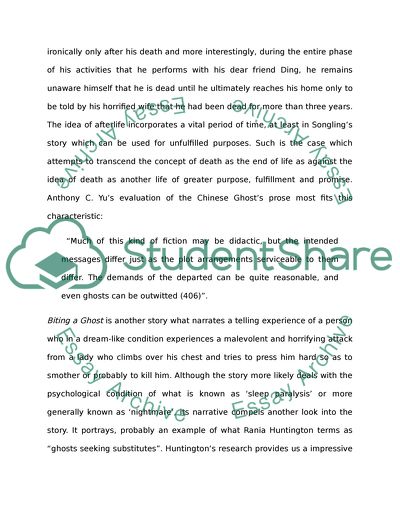Cite this document
(Pu Songling's Ghost Stories - a Recurring Theme of Afterlife Literature review, n.d.)
Pu Songling's Ghost Stories - a Recurring Theme of Afterlife Literature review. Retrieved from https://studentshare.org/literature/1566685-pu-songlings-strange-tales-from-a-chinese-studio-spiritghost-report
Pu Songling's Ghost Stories - a Recurring Theme of Afterlife Literature review. Retrieved from https://studentshare.org/literature/1566685-pu-songlings-strange-tales-from-a-chinese-studio-spiritghost-report
(Pu Songling'S Ghost Stories - a Recurring Theme of Afterlife Literature Review)
Pu Songling'S Ghost Stories - a Recurring Theme of Afterlife Literature Review. https://studentshare.org/literature/1566685-pu-songlings-strange-tales-from-a-chinese-studio-spiritghost-report.
Pu Songling'S Ghost Stories - a Recurring Theme of Afterlife Literature Review. https://studentshare.org/literature/1566685-pu-songlings-strange-tales-from-a-chinese-studio-spiritghost-report.
“Pu Songling'S Ghost Stories - a Recurring Theme of Afterlife Literature Review”, n.d. https://studentshare.org/literature/1566685-pu-songlings-strange-tales-from-a-chinese-studio-spiritghost-report.


